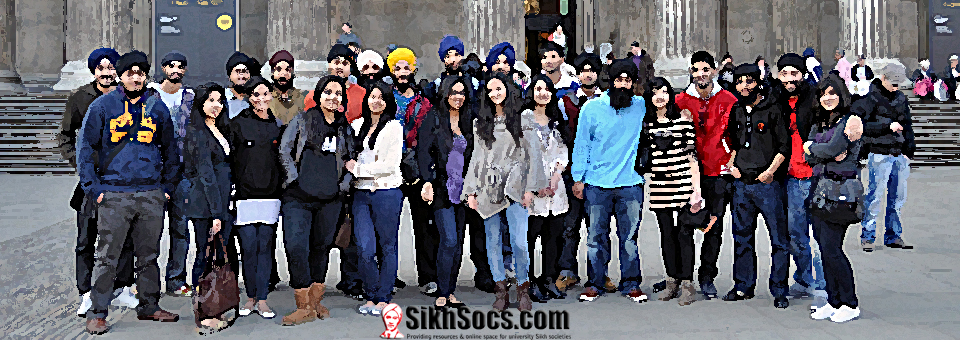Just four months ago, the Sikh World was awash with upheaval. From the banks of the Satluj in Punjab to the shores of the Pacific in California, Sikhs, Punjabis and many others expressed support for a man sentenced to the death penalty in India. That man’s name is Balwant Singh Rajoana and his execution was stayed for the time being in late March. The movement vocalised by hundreds of thousands became known by an all-encompassing idea: ‘I Pledge Orange’. But all too quickly, so much of the grass roots passion that promised so much in the ‘Sikh Spring’ of 2012, has not so much dispersed, as evaporated entirely. How and why did a zeal for change amongst such vast numbers of Sikhs come to disappear from the conversation table altogether in just a hundred days?
Since my days as a school pupil in the 1980s, I have witnessed, researched and analysed the way in which the Sikh people are being dealt with by groups both within and outside of the community. With that knowledge it came as no surprise to me that the ‘I Pledge Orange’ movement declined with such rapid ferocity, though at the height of the issue I was taken aback by the sheer number of people who were speaking out, which itself needs to be appreciated. However, quantity is never a match for quality, which in this case is perhaps an improper term but best describes the preparedness and strategies employed by those who seek to control the mindset of the Sikh masses to further their own agenda. This lies at the heart of why the campaigning is almost nowhere to be seen today and more importantly why the events of the last four months have amounted to very little that can be deemed as progress for us as a people, when pledging orange had promised so much more.
As early as the demise of the Khalsa Darbar in 1849, attempts have been made to control the Sikh people through common agencies, be they State-sponsored or otherwise. As a Panth, our response has always been swift and in the process has given rise to great leaders that evoke the true spirit of the Khalsa from Bhai Maharaj Singh to Sant Jarnail Singh. Largely we have survived the onslaught, staying true to our principles and the ideals of the House of Guru Nanak. But since the events of 1984, globally there has been a shifting of the technological capabilities at our disposal, and consequently the proverbial ‘game’ has changed. Sadly, we have failed to change with it. As Sikhs we are less likely to reflect on what someone is saying, review and then reach a conclusion, but are more likely instead to follow hyperbole and insincere jingoism from our ‘leadership’. In an era of Youtube, Facebook and Whatsapp, those pledging orange with great fervour but little to no previous knowledge or experience were doomed to reach a state of apathy within a matter of weeks, thanks to those who were bent on corrupting the movement.
The rot had begun to set before the ‘I Pledge Orange’ movement had even commenced in earnest. From the earliest moments of protest and social discourse, certain Sikhs from within the community began to channel the direction we were taking on to a detrimental path. Attention was being drawn through the media and on stages at Gurdware to appealing the sentence in this specific case and to consider the matter as indicative of wider human rights issues in the Punjab. As plausible a notion as this might sound, it is neither the direction that Sikh ideology warrants, nor the avenue that the Sikh intelligentsia of our recent past has allowed us to take. Whilst human rights violations in the Punjab are a serious issue to be dealt with and were to some extent of relevance to the case of Balwant Singh Rajoana, the real story that we were being kept from hearing was why countless young men in Indian Punjab had been leaving their homes and loved ones for over a decade to openly rebel against the state. From within the Sikh community, reassured voices that appeared to chime in tune with the younger generation did not allow the cogs to turn and for these very real matters to be faced. Some of these voices belonged to animated, but naïve individuals, who had fallen under the spell of the real conspirators in our midst that we as a people have become in-equipped to see and it is these conspirators who are even now, blind siding the Panth.
A few months ago, these were the people who took control of where the ‘I Pledge Orange’ movement would go, not interfering with activism on the ground, but at a much higher level, dictating what was being said in Punjab and providing the spotlight for mainstream media everywhere to find an angle. Punjab has been all-but destroyed as a State by discriminatory policies over river-redirection, resource consumption, job provision, industry investment, schools’ curriculum and more. Rather than alerting generations of otherwise preoccupied Sikhs to this reality in which millions of their religious brethren and personal family survive every day on the other side of the World, the conversation was being flooded with a variety of suggestions including the declaration of Rajoana as Jathedar of Sri Akal Takht Sahib, announcing him as a ‘jinda-shaheed’ and even giving him a seat in Parliament. This went against the sentiments being articulated by Rajoana himself and drowned out his calls to focus on the reasoning that he and his contemporaries had given to enact the assassination of the then Chief Minister of Punjab. He had wanted people to understand what was going on and to awaken to the nightmare in which we are delving ever deeper. Predictably, those pied pipers who played us all to a merry tune have ceased from their disingenuous calls to hail Rajoana as our new leader, and in some cases these characters have disappeared altogether. Left behind is a man in prison who along with too many of his generation is being lost to history. But more so an unenlightened Panth, particularly in Western nations, that got so close to hitting ‘off’ on the alarm clock but instead has opted for ‘snooze’.
What does the sliding disinterest in the ‘I Pledge Orange’ movement say about us as people? Are we victims of a 21st century society that revels in a ‘cause du jour’ before moving on to the otherwise frivolous activities that sustain our lives? Or are we guilty as Sikhs of going against the very principles on which Guru Nanak established a new way of life for mankind five centuries ago? Certainly, we must take some of the blame. Beyond question, Sikhs are infiltrated by so many characters who are acting out a drama of their own scripting. But that should hold no sway over what we as individuals set out to do if we wish to hold ourselves to account as students of the Master, Guru Nanak – we should be engaged in learning about life through his teachings. What is happening today to the ‘I Pledge Orange’ movement was done previously, successfully, from 1998-2000, 1988-1991, and partially successfully from 1984-1986. If we as a Panth knew this history and came to learn how all of what has transpired in Punjab since 1849 cannot be evaluated in separation, then perhaps we would still be pledging orange. Perhaps the fundamental causes of our present (and future) state of infirmity could be remedied.
I pledge orange. For as long as I can remember my life, I have pledged orange. Doing so is not about your relationship to a specific colour, or changing your Facebook profile picture. It’s recognising the values of worldly justice, equality of opportunity and a search for Truth that Guru Nanak introduced to the World. Four months ago I wrote a number of Facebook notes and was repeatedly quizzed as to what an individual could do at this time to ensure they progress, rather than remain stagnant or worse still, degenerate. The answer was simple: you need to become educated; you need to learn; where now there is ignorance you need to find light. The House of Guru Nanak is built on the founding principle that you are the master of your own destiny so take this opportunity; don’t wait for an age that isn’t coming or a guardian that doesn’t exist. You have the unequivocal words of Guru Nanak to guide you and the navigational directions of the millions who have forged this path before you. On that first step, you might look to those who put the power of learning into your hands for inspiration, or a book list, or even a class. But realise that nothing will come to be unless you make it happen. And if you do, beware the ides of March. I did and I am sure Balwant Singh Rajoana did too.





